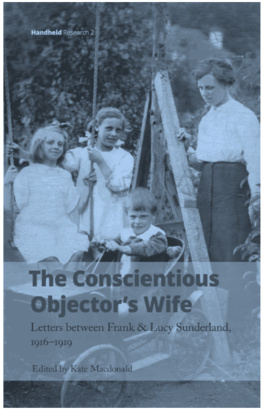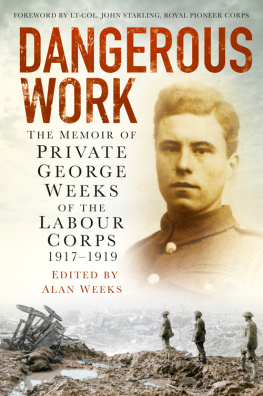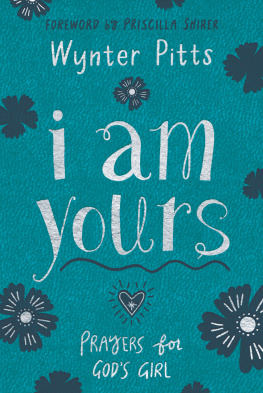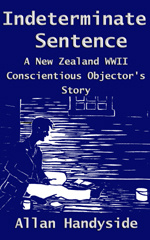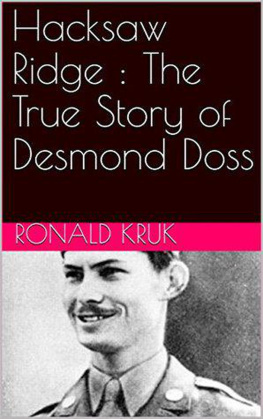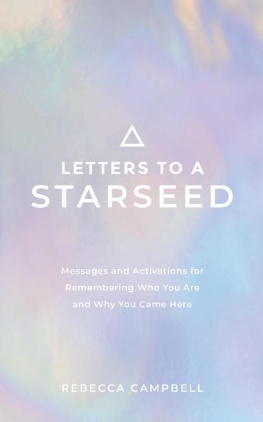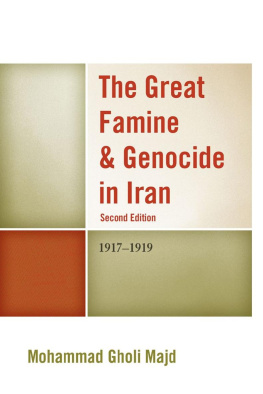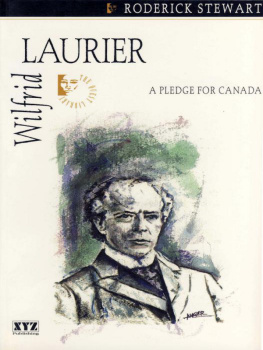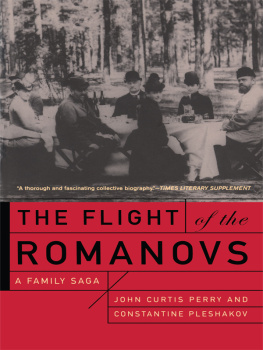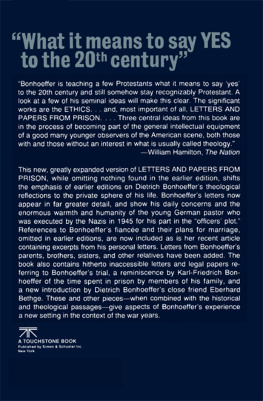Rebecca Wynter - A Quaker Conscientious Objector: Wilfrid Littleboys Prison Letters, 1917-1919
Here you can read online Rebecca Wynter - A Quaker Conscientious Objector: Wilfrid Littleboys Prison Letters, 1917-1919 full text of the book (entire story) in english for free. Download pdf and epub, get meaning, cover and reviews about this ebook. year: 2020, genre: Religion. Description of the work, (preface) as well as reviews are available. Best literature library LitArk.com created for fans of good reading and offers a wide selection of genres:
Romance novel
Science fiction
Adventure
Detective
Science
History
Home and family
Prose
Art
Politics
Computer
Non-fiction
Religion
Business
Children
Humor
Choose a favorite category and find really read worthwhile books. Enjoy immersion in the world of imagination, feel the emotions of the characters or learn something new for yourself, make an fascinating discovery.
- Book:A Quaker Conscientious Objector: Wilfrid Littleboys Prison Letters, 1917-1919
- Author:
- Genre:
- Year:2020
- Rating:5 / 5
- Favourites:Add to favourites
- Your mark:
- 100
- 1
- 2
- 3
- 4
- 5
A Quaker Conscientious Objector: Wilfrid Littleboys Prison Letters, 1917-1919: summary, description and annotation
We offer to read an annotation, description, summary or preface (depends on what the author of the book "A Quaker Conscientious Objector: Wilfrid Littleboys Prison Letters, 1917-1919" wrote himself). If you haven't found the necessary information about the book — write in the comments, we will try to find it.
Rebecca Wynter: author's other books
Who wrote A Quaker Conscientious Objector: Wilfrid Littleboys Prison Letters, 1917-1919? Find out the surname, the name of the author of the book and a list of all author's works by series.
A Quaker Conscientious Objector: Wilfrid Littleboys Prison Letters, 1917-1919 — read online for free the complete book (whole text) full work
Below is the text of the book, divided by pages. System saving the place of the last page read, allows you to conveniently read the book "A Quaker Conscientious Objector: Wilfrid Littleboys Prison Letters, 1917-1919" online for free, without having to search again every time where you left off. Put a bookmark, and you can go to the page where you finished reading at any time.
Font size:
Interval:
Bookmark:

by Deborah Nash
My grandparents Wilfrid and Winifred Littleboy came to live with us in the village of Jordans in Buckinghamshire in 1976. Wilfrid was by then 91, and although not as robust as he once was, he was still driving and still insistent on digging the vegetable patch! Active in mind and spirit, Wilfrid was deeply involved in the Society of Friends to the very end of his life.
Wilfrid had married Winifred Edminson at Jordans in May 1920. Winifred was brought up at Leighton Park School in Reading, where her father Frederick was housemaster of Grove House. She was educated at The Mount School in York, and at London University, and went on to teach history at Ackworth School. All three schools were Quaker schools. She gave up her teaching once she was married. It is likely that Wilfrid would have met Winifred through Young Friends in the immediate post-war period. After the wedding, they settled in Birmingham where they had two children my mother Margaret (Mel) who was born in 1923, and Christopher, who was born in 1927.
My younger sister Beth Fenton recalls a conversation she had with Wilfrid about pacifism. She remembers being deeply impressed that he did not criticise people who had fought in the war, saying that each person should do what they felt God called them to do; but for himself, he felt he should witness steadfastly against the use of violence to address political differences that always it must be remembered that war is not the only answer.
Wilfrid was a wonderful grandfatherkind and gentle, with a whimsical sense of humour. He was interested in all of us and keen to share in our lives. He never talked about his time in prison, though we were aware that his habit of taking porridge without either salt or sugar related to that period in his life. We knew, of course, that he had prodigious recall of texts, both religious and non-religious, as well as his enjoyment of the ridiculous. However, it was only 30 years later, when my mother and I set out on the project of transcribing his letters from prison, that I realised just how much this recall ability had been nurtured during his time in custody. Wilfrid had read a huge number of books and had committed a lot of text to memory. This served to strengthen his personal conviction, providing endless food for thought, as well as for discussions in letters, or in the exercise yard.
The transcription process took us most of ten years. We were helped and encouraged by the eminent Quaker historian Ted Milligan, who was a family friend. Although they were many years apart in age, Wilfrid and Ted developed an enduring friendship. Their paths first crossed at Yearly Meeting in 1934, when Wilfrid had just been appointed Clerk. They remained closely in touch until Wilfrid died in 1979. Several Jordans Quakers and members of our immediate family also gave much welcomed support. My mother would have been so delighted that the letters have found their way into the care of Ben Pink Dandelion and Rebecca Wynter at the Centre for Research in Quaker Studies at Woodbrooke.
Wilfrid was the eldest son of Francis and Lucy Littleboy of Newport Pagnell in Buckinghamshire. They were a close family who were all deeply committed to the Society of Friends and to the welfare of the people around them. Francis was a bank manager by profession, but he and Lucy spent a lot of time working at the Mens and Womens Adult Schools as well as the Temperance Societies in Newport Pagnell. Although Francis sat on the Urban District Council, he always refused magisterial work as he felt himself unfit to judge his fellow men. Wilfrid inherited many of his fathers characteristics and values. He loved music, and although he was not allowed to learn an instrument as a child, took great joy from playing the pianola as an adult. He had a very strong singing voice.
The four brothers Wilfrid, Ronald, Alfred and Gerald were educated at Bootham School in York, where, as well as pursuing their academic studies, they were all keen cricket players. This love of cricket (to which there are brief references in the letters) remained with Wilfrid throughout his life. Even in their old age, he and his wife Winifred would be regular visitors at Warwickshire County Cricket Ground.
Another passion of the Littleboy family was hillwalking in the Lake District and Snowdonia. Wilfrids recollections of these holidays were of great comfort to him during his time in prison. He was an accomplished bird-watcher, and was well used to reading the weather from cloud patterns. There are numerous references to natural history in the letters, many observations being made from his cell window, or out in the exercise yard.
After leaving Bootham in 1902, Wilfrid settled in Birmingham where he was apprenticed to a firm of accountants. He was closely involved with the Society of Friends both locally and nationally, and built up a very close relationship with his Uncle William (Littleboy) who was to become Warden of Woodbrooke in 1904, a Quaker settlement and later a college outside Birmingham. Wilfrid lived at Woodbrooke for two terms in 1905, and remained deeply committed to the college for the rest of his life.
Perhaps the most relevant aspect of Wilfrids witness in this period was his involvement in the development of the Young Friends Committee sparked off by the Swanwick Conference of 1911. Wilfrid was its first secretary, and guided it through the bewildering period between the outbreak of war in August 1914 and Yearly Meeting in summer 1915. Ted Milligan writes in his obituary of Wilfrid that it was a time of confusion and unsettlement and that William Littleboy, who was by then 62, said with some justice at Yearly Meeting that the older generation had been hesitating and seeking. He goes on to say that Wilfrid however, was among the young men of military age who showed no spirit of compromise. He knew that the absolutist stance was the only one, in true conscience, that he could take and that he would go to prison. Both he and his great friend Hugh Gibbins were arrested on 1 January 1917 and went through the process together.
In a letter found in my mothers papers, Ted Milligan writes that although a businessman by profession, William Littleboy was more interested in men and books than in machines. All his life he had been a reader, and although not a scholar, he kept himself abreast of present day thought and gradually built up an impressive library. Partly owing to this and partly owing to his great gift for friendship, he was able to help many through the problems and afflictions of life. Wilfrid certainly benefitted from Uncle Williams support and friendship whilst he was in prison. The vast majority of books to which he had access to during this period would most likely have come from Williams personal library, or the library at Woodbrooke.
About sixteen years ago, my mother proposed that we transcribe my grandfathers letters from prison as a gift to the next generation in the family. With the help of Ted Milligan, and more recently, Rebecca Wynter and Ben Pink Dandelion who wrote the extensive introduction, the letters have now been put into a wider historical context than I could ever have dreamed of. I hope A Quaker Conscientious Objector will be of real interest to many. It is a fascinating insight into two years of my grandfathers life, two years that were fundamental in the formation of his conviction that war was wrong and that there is that of God in each one of us.
Dr Rebecca Wynter is a historian at the University of Birmingham. She has worked, published, and exhibited on the history of Quakers and the histories of medicine, psychiatry, and mental health.
Font size:
Interval:
Bookmark:
Similar books «A Quaker Conscientious Objector: Wilfrid Littleboys Prison Letters, 1917-1919»
Look at similar books to A Quaker Conscientious Objector: Wilfrid Littleboys Prison Letters, 1917-1919. We have selected literature similar in name and meaning in the hope of providing readers with more options to find new, interesting, not yet read works.
Discussion, reviews of the book A Quaker Conscientious Objector: Wilfrid Littleboys Prison Letters, 1917-1919 and just readers' own opinions. Leave your comments, write what you think about the work, its meaning or the main characters. Specify what exactly you liked and what you didn't like, and why you think so.

